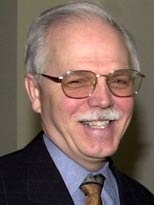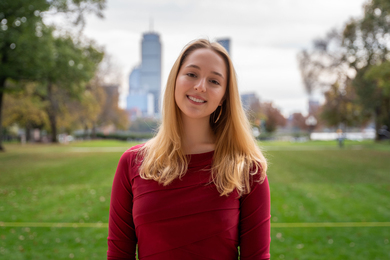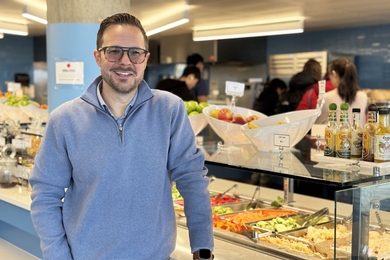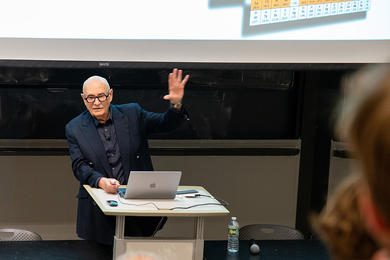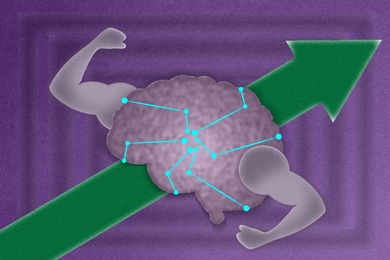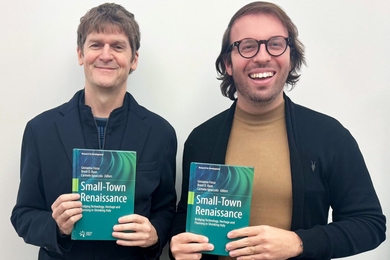Speaking before a distinguished group of leaders from government, industry and academe, MIT Dean of Engineering Thomas L. Magnanti recently issued a clear call for a new way of thinking about American higher education.
"I would offer two recommendations: Launch an 'OpenCourseWare for Secondary Education,' a web site focused on science, engineering and mathematics, that would help close the achievement gap in science and engineering education in the United States that concerns us all," Magnanti said. And, "create incentives to catalyze the development of OpenCourseWare projects at universities and colleges across the United States, enabling the open sharing of educational materials from a variety of institutions, disciplines and educational perspectives."
Magnanti strongly endorsed the OpenCourseWare (OCW) model, developed at MIT, before a public meeting of the U.S. Secretary of Education's Commission on the Future of Higher Education held in San Diego on Feb. 3. The commissioners -- among them former MIT President Charles M. Vest -- asked speakers to discuss innovative ways to improve higher education in the United States.
After presenting evidence of OCW's impact on educators and learners around the world, Magnanti stressed the benefits that users in the United States derive from MIT's unique experiment in open sharing. "OpenCourseWare users come from all over the world," Magnanti stated in his testimony, "but right here in the United States, students, self-learners and educators are finding MIT's open sharing resource to be an invaluable resource."
He cited as an example Allen Kovacs, an adjunct member of the faculty at Wayne State University in Detroit, Mich., who wrote: "We have a problem with students entering our engineering program with deficiencies in math and science. Your offerings may be of great influence and assistance to these kids who don't get enough preliminary training in K-12 curriculums. America has a huge problem educating for its technical needs. It is your OpenCourseWare web site that may ignite some interest. It is a great extension to learning and knowledge."
Sharing the stories of other OCW users, Magnanti said, "OpenCourseWare demonstrates that this initiative is attracting an increasingly global audience of self-learners, students and educators, including a core group of returning visitors each week."
He added, "Nearly a third of educators have already adopted OpenCourseWare materials for use in their own teaching."
Magnanti also addressed potential cost savings through wider adoption of the OpenCourseWare model. "We know that high-quality educational materials and web-based resources can be expensive to develop," Magnanti stated. "When institutions share them openly on the web through programs such as OpenCourseWare, there are savings to be realized across higher education."
Professor David Wiley of the Center for Open and Sustainable Learning at Utah State University (which launched its own OCW initiative with a limited number of courses in 2004), and Joel Smith, vice provost and chief information officer for computing services at Carnegie Mellon University, shared the dais with Magnanti during his panel presentation.
U.S. Secretary of Education Margaret Spellings formed the Secretary of Education's Commission on the Future of Higher Education in fall 2005. The commission is charged with developing a comprehensive national strategy for postsecondary education that will meet the needs of America's diverse population and also address the economic and workforce needs of the country's future.
A version of this article appeared in MIT Tech Talk on March 1, 2006 (download PDF).
